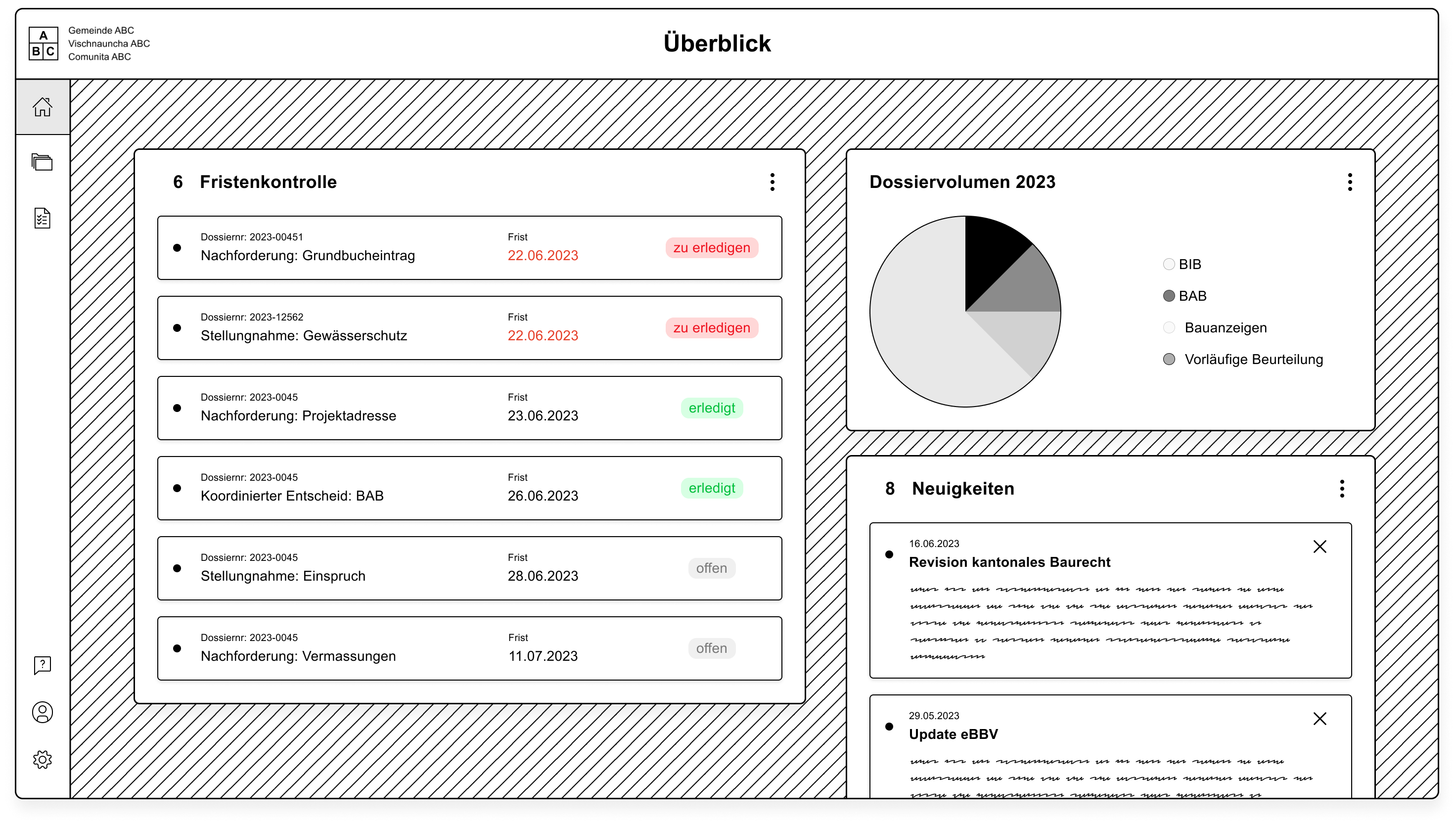
Can we build it?
Together with the team from the Amt für Raumentwicklung Graubünden (ARE) and Basler & Hofmann, we laid the foundation for a digitised building application process. Working as a team, we successfully streamlined and standardised the building permit process and helped advance the transition of the canton of Graubünden from the analogue to the digital world.
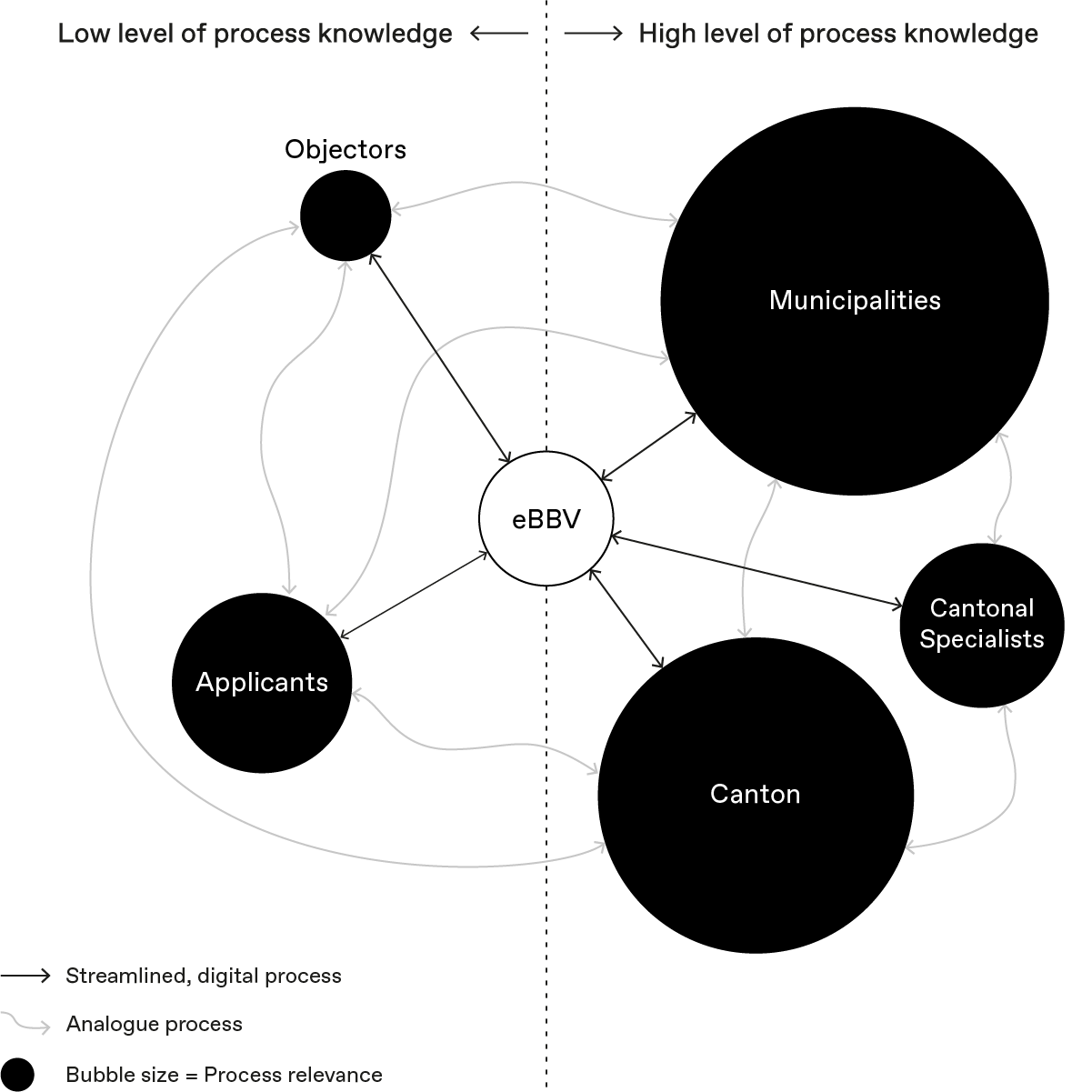
A multilingual, heterogenous challenge
In the trilingual canton of Graubünden, building applications span a wide spectrum, ranging from elaborate multimillion-dollar hotel projects designed by renowned architects to simple stable extensions depicted in hand-drawn sketches. To embark on the digitalization of the building permit process, the initial focus was on understanding the diverse requirements and capabilities of the highly diverse target groups, including building owners, administrative staff in municipalities, and cantonal offices. Overcoming the digital divide caused by demographic factors and addressing the numerous media discontinuities in government correspondence were equally significant challenges.
Co-Creation across groups & regions
Starting off with understanding the legal constraints we mapped the user journey and envisioned a product strategy. At the same time, we conducted qualitative interviews with representatives of the different stakeholder groups. Based on our results, we facilitated co-creation workshops with the major stakeholder groups, encouraging active participation and ideation. Together, we mapped the current user journey and developed the target user journey based of on their needs.
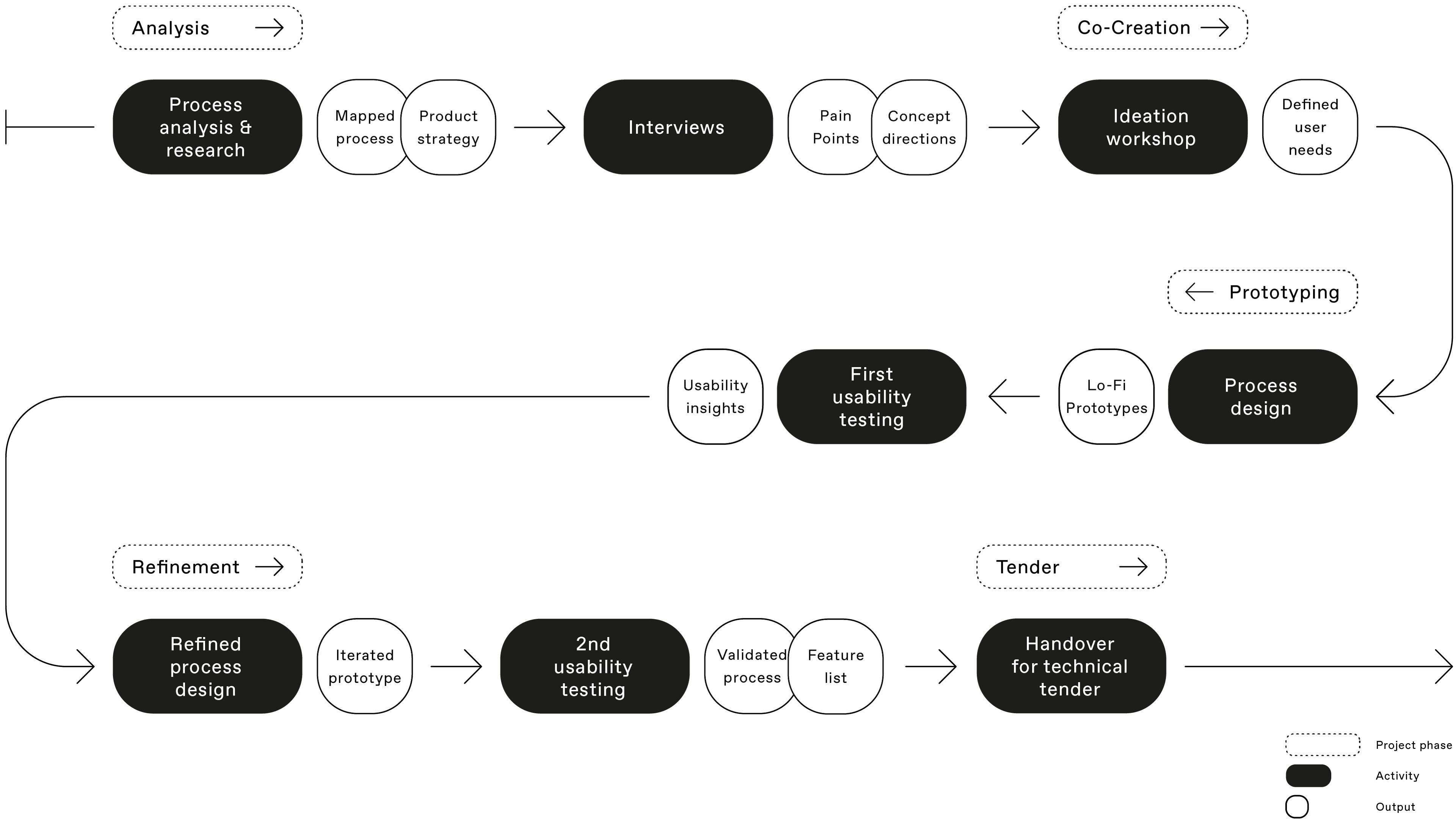
FOND efficiently guided this collaborative process, resulting in outstanding outcomes that smoothly integrated into the project's subsequent phases. They demonstrated a remarkable level of professionalism and were very pleasant to work with.
Nicolas Schmidt · Teamleiter · Basler & Hofmann AG
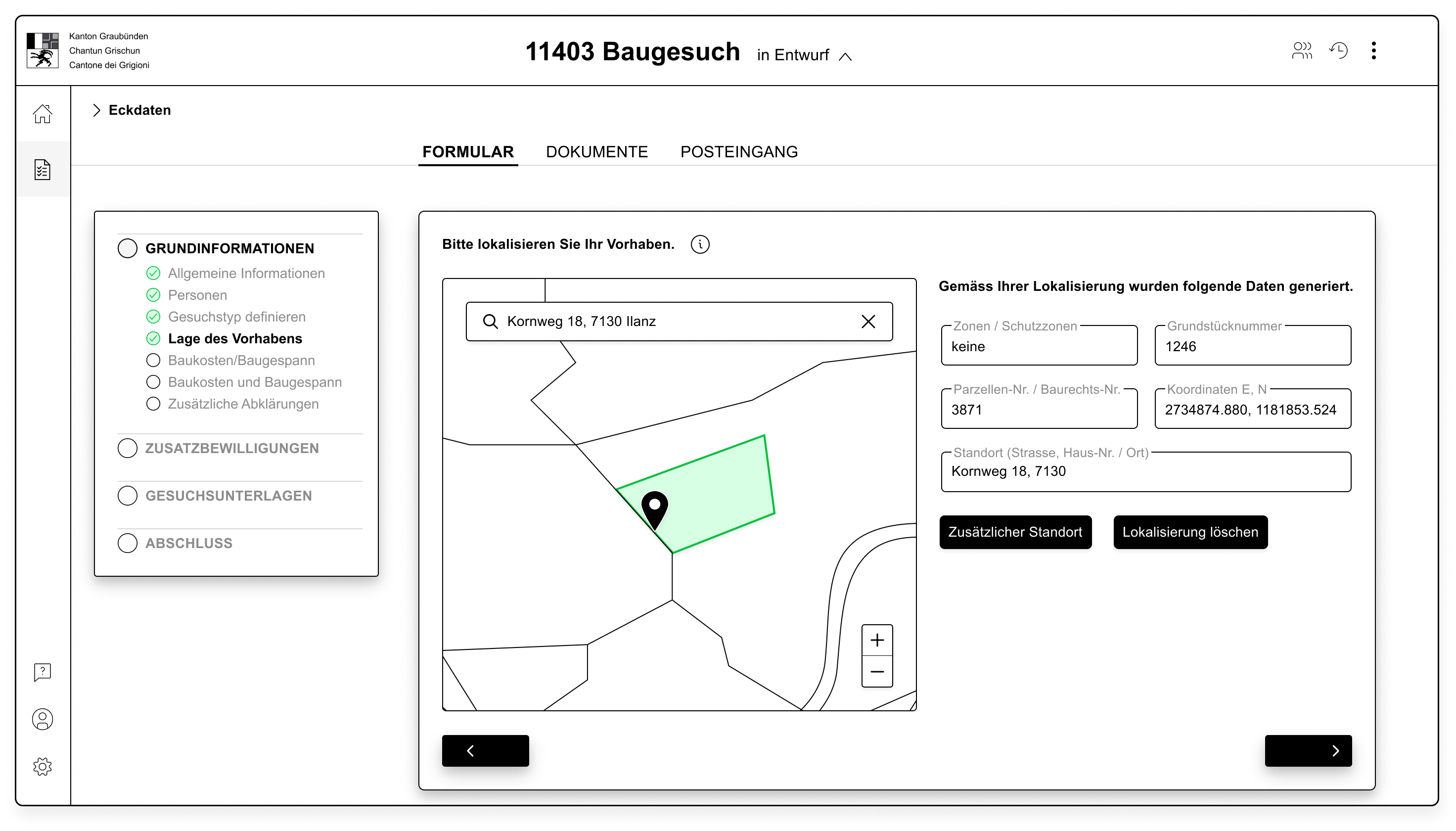
Designing process efficiency
Process design is about evaluating the necessary steps and condensing them into a coherent, efficient flow. Logical organization of tasks ensures seamless execution and minimizes errors and delays. This not only has a positive impact on cost efficiency, but also increases user satisfaction.
Why is a citizen-centered approach crucial for creating a desirable future?
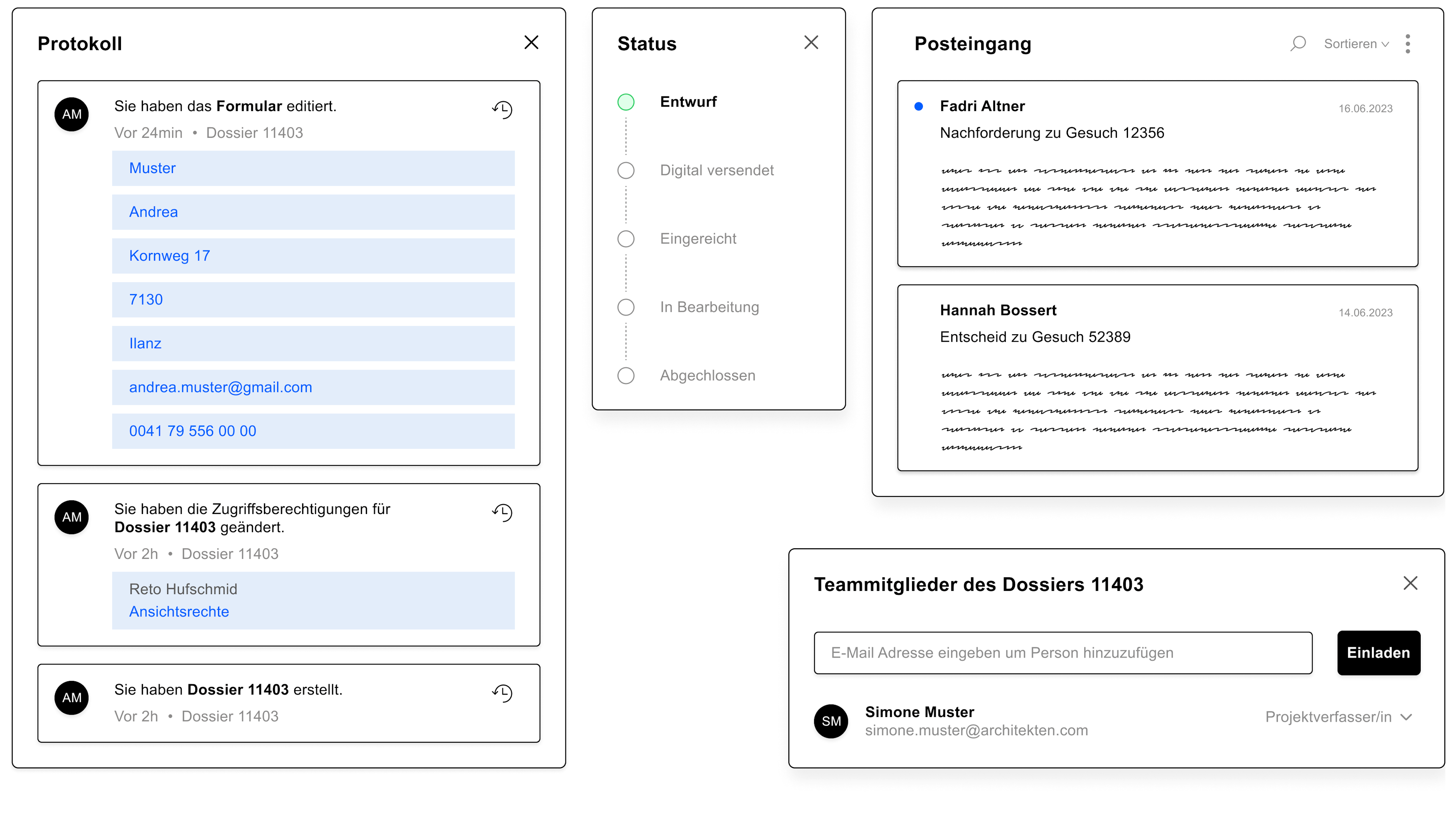
Designers
Meret Wacker, Paméla Schmidinger, Dominic Sturm, Alex Robert
Services
UX & UI Design
Partners